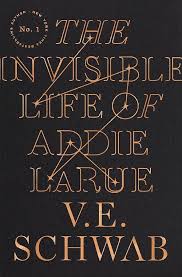Chapter X
byChapter X begins with Henry’s reflective drive back home, a journey that encapsulates his strained relationship with the concept of “home” and the dynamics within his family. The drive from New York City to Newburgh is not just a physical transition from one place to another, but a mental preparation for the complex emotions that come with returning to his family. This internal struggle is heightened by the long-standing roles each family member plays in his life: David, the dependable and structured older brother; Muriel, the unpredictable and fiery presence; and Henry, who often feels like a mere shadow, floating between these dominant forces. As he nears the family gathering, Henry mentally braces for the predictable ritual of familial critique and expectation, a pattern that has shaped his experience with his family for years. This anticipation casts a shadow over the evening, as Henry expects to confront the same unspoken judgments and criticisms that have always defined his interactions with his family.
However, upon his arrival, the atmosphere is startlingly different from what Henry had anticipated. The usual undercurrent of tension and judgment is nowhere to be found. Instead, his family greets him with an openness and warmth that feels completely foreign to him, creating a sense of surreal dissonance. His family, including David and Muriel, expresses genuine support and interest in his life, without the usual barrage of critiques or negative comments. When they ask about his current job managing a bookshop in Brooklyn and his past life choices, there is no underlying disappointment or disapproval. Instead, there’s a sense of pride and acceptance that Henry has never encountered before. The casual, supportive tone of the evening contrasts sharply with the usual atmosphere of unspoken disappointment that Henry expects, leaving him to adjust to a new, unfamiliar dynamic that feels both liberating and uncomfortable.
As the evening progresses, the conversation remains unexpectedly open and authentic. There are no long-winded lectures or unsolicited advice from his family members—just sincere inquiries into his well-being and a mutual exchange of respect. Even Muriel, typically the most critical of the bunch, speaks with a newfound gentleness, showing genuine concern for Henry’s happiness and future. This shift in their relationship dynamic is especially evident when, in a quiet moment on the porch, Muriel discusses his recent breakup with Tabitha with care and empathy. Henry, for the first time in a long while, feels the full weight of their affection without the usual undertones of judgment. These moments reveal a side of his family that he’s never seen before, a side that’s unburdened by the weight of past expectations and disappointments. This unexpected tenderness highlights the potential for deeper, more meaningful connections within the family, where honesty and vulnerability can exist without fear of judgment.
Despite the newfound warmth and support from his family, Henry’s deeply ingrained skepticism remains. He’s unable to fully embrace the affection and openness on display, still questioning the authenticity of this shift in familial dynamics. The dissonance between the genuine love his family is offering and his long-standing expectations of their disapproval leaves him emotionally conflicted. The contrast between what is happening in the present and what he’s come to expect over the years forces Henry to reckon with his own limitations and emotional barriers. In the end, this chapter captures the complexities of family relationships, particularly the challenges of reconciling past disappointments with the possibility of growth and change. Through this intimate evening with his family, Henry is confronted with the opportunity for real connection, but also with the difficulty of breaking free from the confines of old patterns. This exploration of familial love, self-identity, and the longing for acceptance illustrates the emotional complexity of relationships and the difficulty of allowing oneself to be vulnerable, even in the face of genuine support.


